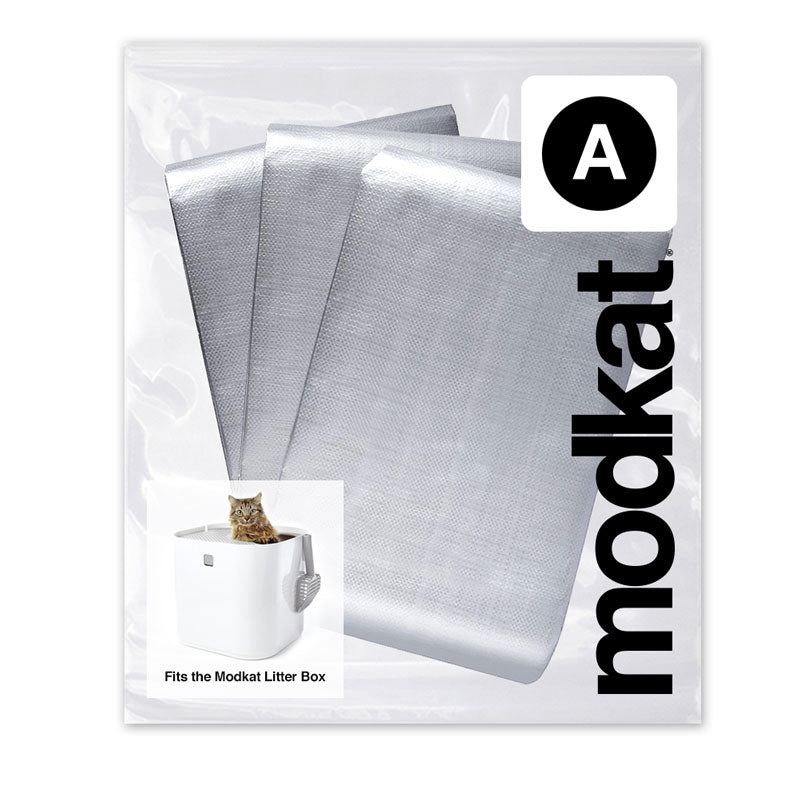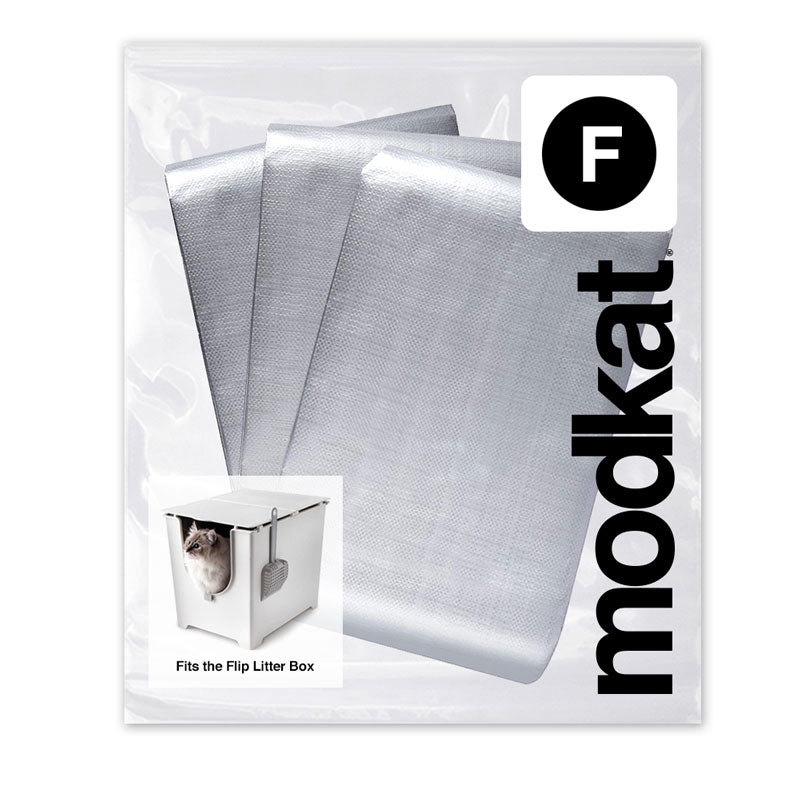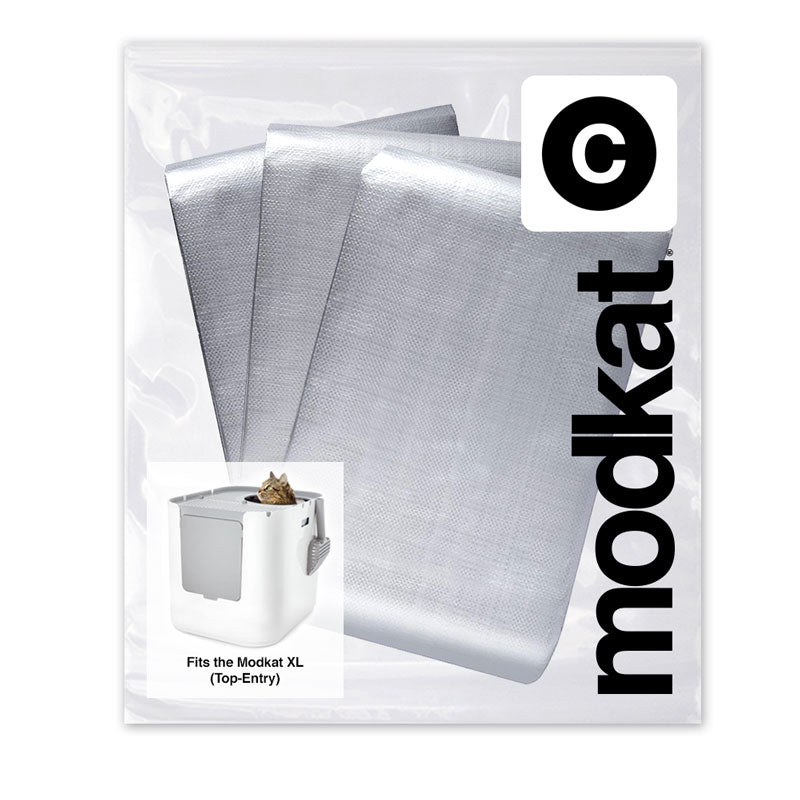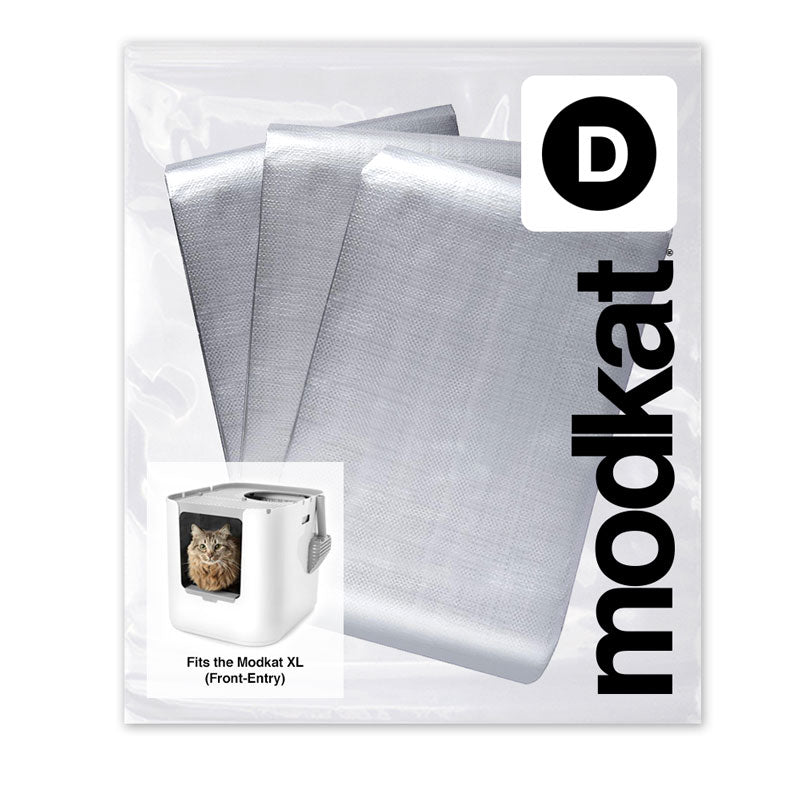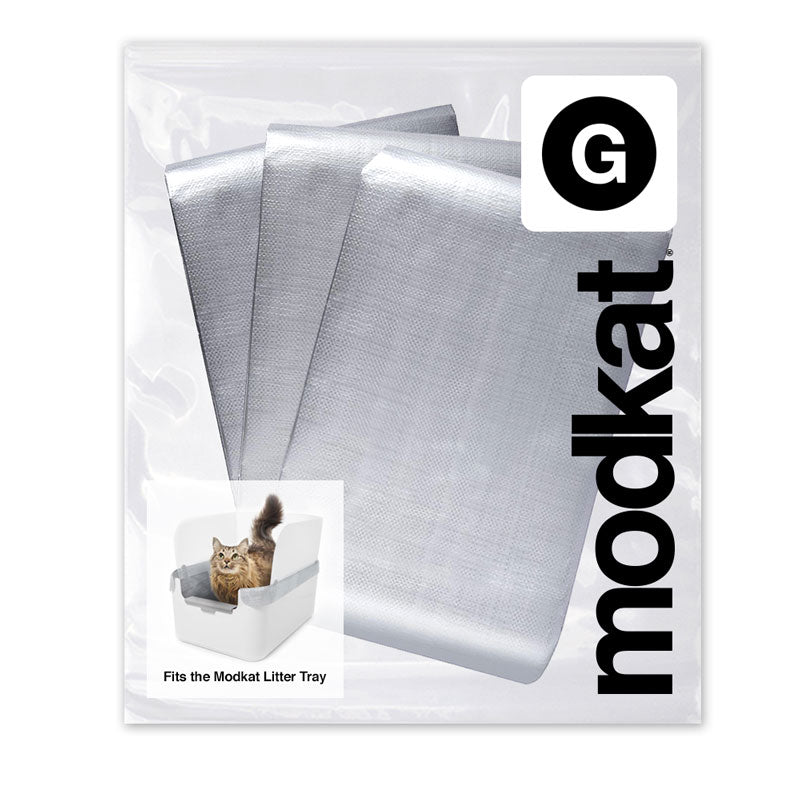Your Cart is Empty
$12 CAD shipping on orders over $62 CAD
$12 CAD shipping on orders over $62 CAD
Litter Boxes
Accessories
Outdoor litter boxes: The pros and cons.

The right litter box can make all the difference for you and your feline friend. It can ensure your cat is comfortable doing their business while also keeping your home clean. If you have a cat that likes exploring the great outdoors, you may find yourself considering an outdoor litter box.
Before we go any further, let's be clear: most experts recommend never letting your cat out of the house. The great outdoors is filled with potential health and safety threats that can be dangerous or even fatal to cats. But if you already have an outdoor cat or if you live in an area where you believe your cat is safe, read on.
Keeping your cat’s litter box outside may seem like a convenient setup, but it may not be the best solution for pet owners and their furry family members.
Learn all about the pros and cons of outdoor litter boxes along with the best way to provide a safe, clean litter box for your pet that’s both practical and looks great.
Do all cats need a litter box?
For thousands of years, cats relieved themselves in ashes, dirt, or sand — anywhere that soaked up the ammonia-like odor that would give away their presence to predators. Today, however, modern cats can't just go anywhere. They need multiple litter boxes to stay happy and healthy.
There's a reason for this upgrade in feline facilities:
Most pet cats live indoors, so it makes sense for cat owners to contain litter and clumps to a single area.
What about outdoor cats, though? About 20% of our feline friends go inside and outside as they desire. Don't these pets need kitty litter and covered boxes to do business in, too?
Yes, cats that live outdoors part-time also need an outside litter box, but these boxes can be hard to keep up. Outdoor litter boxes are more likely to become soiled or broken, which means owners will have to spend more time cleaning them out and repairing them. Oh, and you definitely need a covered box to protect your litter pebbles from the rain.
In fact, outdoor cat owners might want to find a waterproof outdoor cat litter box or buy a cat house with a removable floor that can be easily cleaned. One option is not necessarily better than another — it all comes down to personal preference and what's easiest for you and your pet. The most important thing is finding what works best for both you and your feline friend.
If you're willing to put in the work required to maintain an outdoor litter box enclosure, then go for it! But if that doesn't sound like your idea of fun, try keeping your cat indoors. If you have a kitten, they'll probably prefer the indoor life, anyway, and adult cats usually opt to use litter boxes over the great outdoors.
Some cats, however, develop litter box problems. Often, these cats are sick, or their litter box needs changing and cleaning. If your cat is having trouble — and you've ruled out a dirty box — then it's time to schedule a trip to the vet.
Pros of outdoor litter boxes.
Outdoor litter boxes offer many benefits for both outdoor pet cats and their feral cousins.
Protect your landscaping
An outdoor litter box can do more than add to your outdoor/indoor cat's feelings of comfort. More importantly, it can prevent a colony of feral cats from turning your flower bed or garden plot into a bathroom.
Typically, homeowners create their own plus-size litter box enclosures — either by building a giant sandbox or by placing traditional litter boxes in the same general area of the yard. Outdoor litter boxes are relatively easy to clean up after, which keeps your yard more sanitary.
Less Smell
A waterproof outdoor cat litter box helps cut down on odor. Using a covered box indoors will also help eliminate smells, but if your cat is one of the 15% that just won't pee in private, then setting his open-top box on the patio might be the best solution. It is a good idea to put an outdoor cat litter box enclosure over your litter box for privacy purposes — yours and the cat's.
Reduces litter tracking
An outdoor box can certainly keep your cat from spraying litter around the house. You don't have to put your cat's box outside to keep litter off the floors, though. At Modkat, we designed our mats to pull stray litter pebbles right off little paws. That way, we help eliminate litter tracking from your home.
What should you look for in an outdoor litter box?
Outdoor litter boxes should be placed in out-of-the-way locations where dogs won't sniff them out. The location of your outdoor cat's litter box may need to change depending on the weather conditions as well as how often you are home during the day and what time of year it is.
If you're worried about any possible predators visiting your outdoor cat's litter box, it is best to get a covered outdoor cat litter box enclosure or install motion sensor lights around it so that nighttime visitors can't see inside.
A variety of different materials can be used to make an outdoor litter box, including recycled plastic, stainless steel, stone, or cement; but we recommend buying a hard plastic one made specifically for cats that like to pee in peace. You can also find elevated litter boxes for outdoor cats and indoor/outdoor solutions if you want to take the option of switching the litter box from indoors to outdoors. Several models of outdoor litter boxes make cleaning up easier such as Modkat’s Tray.
Can you put a litter box on a patio?
Absolutely! Just make sure the rain can't reach the box. You may need to vacuum your patio more frequently, however, and keep wet wipes on hand to wipe dust off your outdoor furniture.
What kind of litter is best for an outdoor cat box?
Precipitation has a way of turning crisp litter pellets into revolting mush. So, you definitely don't want to use conventional litter in an outdoor box unless you've selected a covered option such as the Modkat XL or the original Modkat. One good solution is simply to buy peat moss or sand to use for litter. These are usually available at give-away prices from your local hardware or garden supply store.
Cons of outdoor litter boxes.
Despite its benefits, an outdoor litter box is not all perfume and roses. What are some of the cons of an outdoor litter box?
For one, cats will often be hesitant to use it at first. And if you have more than one cat, they may fight over who gets to go in there. Plus, some people don't like that their neighbors can see it from their windows. Other issues include safety, cleaning, litter, weather, and practical concerns.
Safety
Outdoor litter boxes can attract other animals, some of which may be cats' natural predators. You need to make sure your outdoor litter box enclosure is safe from other animals, including hawks and owls. A covered box may be all you need to keep your pets safe.
Cleaning
Out-of-sight often equals out-of-mind when it comes to cleaning, and with litter boxes, that's never good. Cats may also track dirt and mud into the house when they come inside after using the litter box, so consider putting something like grass mats or fake turf on top of the litter before cats walk inside.
Litter
Litter is not compostable, and you should never flush it down the toilet. Indoor litter solutions are often easy to deal with, but you need a plan for all that heavy, used sand or peat moss before you invest in it.
Weather
Cats may not want to use an outdoor litter box when it's raining, snowing, sleeting, or otherwise inclement.
Not always practical
Apartment-dwellers or folks with small yards may not be able to turn their patch of grass into a feline outhouse. Nevertheless, balconies can serve much the same purpose. Putting a covered litter box on the balcony can help minimize odors indoors, but if you don't keep the door open, your cat can't reach her lavatory.
Best litter boxes for cats.
Do outdoor cats need a litter box?
The answer is yes, they do! And if you have multiple cats, they'll need more than one box.
But where is the best place to put your boxes? Cats like to go where they feel safe, so you should put the litter box somewhere out of sight or too far from your home. You should also avoid positioning it near plants or flowers because cats sometimes use them as a toilet instead.
A covered outdoor litter box will help shield the smell, a necessity if you have neighbors nearby who might complain about the odor. And a cat litter splash guard can also help contain urine and litter pellets, which can save your patio floor and cut down on visits from predators drawn by the scent.
As always, the best litter box, for indoors or outside, is the one your cat will use. That's why litter box furniture and automatic litter boxes usually don't pass the smell test. They're built for human enjoyment and not for feline use.
At Modkat, though, we designed our modern litter solutions for cats and their people. They're durable, cat-friendly, and designed with hygiene in mind. Modkat boxes work in all kinds of environments and settings.
We can't forget that outdoor cats are still part of our feline family and deserve the same space to do business as every other cat. Check out our array of litter box options, and find the right litter box for your kitty today!
Purrr News.
Join our email list and get exclusive access to new products, the best cat litter box health articles, and 10% off your first order.
Products related to this blog:
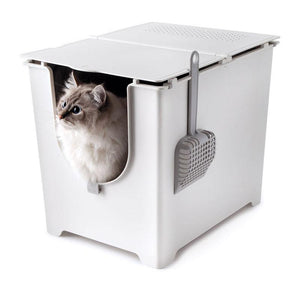
4091 reviews
"This litter box keeps everything in, nothing gets out the sides."
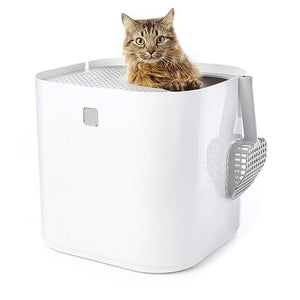
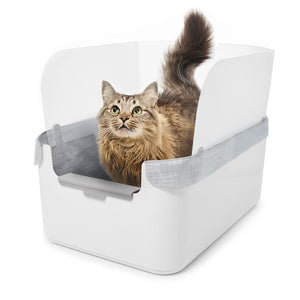
780 reviews
"My beautiful ragdoll cat and I both love the new Modkat Litter tray!"
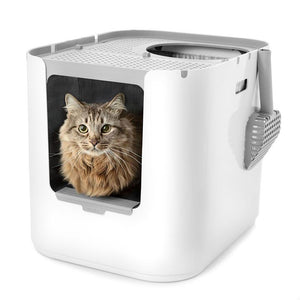
1896 reviews 
"It looks nicer than any other hooded or open option we considered."












